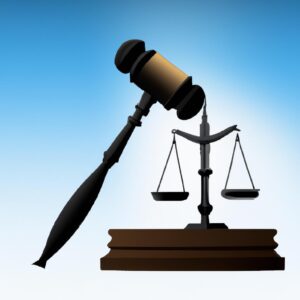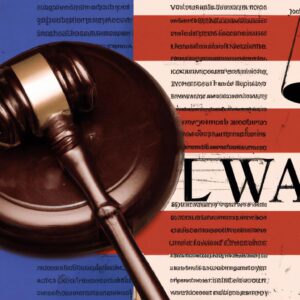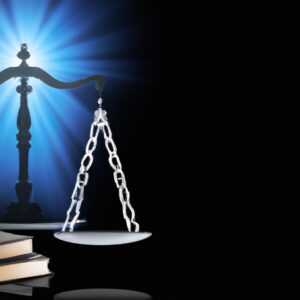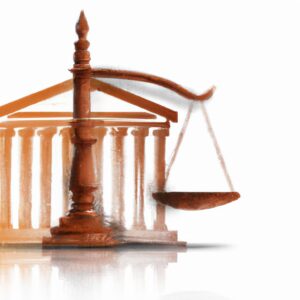
small estate afidavit
Curious about how a small estate affidavit can simplify the process of transferring assets to beneficiaries? Find out all you need to know in our comprehensive guide.
Estate Law New York Page 42

Curious about how a small estate affidavit can simplify the process of transferring assets to beneficiaries? Find out all you need to know in our comprehensive guide.

Setting up a bank account for a trust involves establishing a separate account under the trust’s name. This requires providing necessary documentation and selecting the right financial institution for your needs. Here’s how you can navigate this process smoothly.

Setting up a charitable remainder trust allows you to support causes you care about while receiving income for life. Learn how to make a lasting impact through strategic financial planning.

Some items, like pets, retirement accounts, and certain types of insurance policies, should not be included in a trust. It’s important to consult with a legal professional to ensure your trust is set up properly.

When it comes to determining next of kin for legal matters, the focus is usually on blood relations rather than marital status. This can include parents, siblings, children, or even close friends in the absence of a spouse. The intricate web of familial connections ensures that there is always someone to step in when needed.

As technology advances, more individuals are turning to online platforms to create and manage their wills. However, concerns about trust and security have emerged. Let’s explore the pros and cons of using online services for estate planning.

Trust comes in many forms – from blind trust in loved ones to conditional trust in acquaintances. It can be built on loyalty, honesty, reliability, or even a gut feeling. Understanding the various types of trust can help navigate relationships and interactions in a complex world.

Have you ever wondered about the urban legend surrounding Walt Disney freezing himself? Despite popular belief, there is no evidence to suggest that Disney was cryogenically frozen after his death. Let’s debunk this myth once and for all.

A contingent beneficiary trust allows you to designate secondary beneficiaries in case your primary beneficiaries are unable to inherit your assets. This provides added security and peace of mind for your loved ones.

Looking for a loved one’s will in probate court can be a daunting task. From filing a request with the court to searching through records, follow these steps to navigate the process and ensure your loved one’s final wishes are carried out.

Setting up a trust can be a complex decision, but timing is key. Whether planning for retirement or safeguarding assets for future generations, knowing when to establish a trust is crucial for ensuring financial security and peace of mind.

Forced heirs, those entitled to inherit a portion of an estate regardless of the deceased’s wishes, are a contentious topic in estate planning. Understanding the laws surrounding forced heirs is crucial for anyone looking to ensure their assets are distributed as they see fit.

A payment on death form allows you to designate who will receive your assets upon your passing. Learn how this simple form can help you plan for the future and ensure your loved ones are taken care of.

Discover the intriguing tradition of bloodline wills, where inheritance is passed down through specific family lines. Explore the history and implications of this unique estate planning practice.

Are probate attorney fees tax deductible? Many individuals wonder whether they can write off these expenses on their taxes. Let’s explore this question and understand the potential implications for your finances.

Obtaining a deed to a property is an essential step in securing ownership rights. From researching property records to completing legal paperwork, follow these steps to ensure a smooth transfer of ownership.

Will and trust services offer peace of mind by ensuring your assets are distributed according to your wishes. Plan for the future and protect your loved ones with professional guidance and expertise.

Looking to invest in real estate? Consider buying probate properties. These unique opportunities, often sold below market value, can be a great way to add value to your investment portfolio.

When a person dies, their tax debt doesn’t disappear. It becomes the responsibility of their estate to settle any outstanding taxes using assets left behind. Make sure to plan ahead and consider tax implications when estate planning.

In Washington state, filial responsibility laws hold adult children accountable for their elderly parents’ necessities. With the rising cost of long-term care, many families are facing financial strains and legal obligations.

Navigating the probate process can be overwhelming, especially after losing a loved one. It is essential to understand how long you have to file probate after death to ensure a smooth transition of assets and property.

Bloodline inheritance is a fascinating concept that explores how traits, talents, and tendencies can be passed down through generations within a family. By examining family history and genetics, researchers aim to uncover the mysteries behind this complex form of inheritance.

Receiving an inheritance can be a life-changing event, yet navigating the legal and emotional complexities that come with it can be daunting. From managing the financial aspects to honoring the legacy of your loved one, here are some key considerations to keep in mind.

When planning for the distribution of your assets, deciding between an estate or a trust can be a daunting task. Understanding the differences and benefits of each option is crucial in making the best decision for your loved ones.

Probate is the process of validating a deceased person’s will and distributing their assets. Not everything is subject to probate, though – find out what is and what isn’t.

When it comes to owning property with a partner, the choice between joint tenancy and community property can have significant legal and financial implications. Understanding the differences is essential for protecting your assets and interests in the long run.

A deed with right of survivorship is a powerful tool that allows property to automatically transfer to a surviving joint owner upon the death of the other owner. This can help avoid lengthy probate processes and ensure a smooth transfer of ownership.

Do you suspect you might be a beneficiary of a trust but are unsure how to confirm it? There are various ways to investigate, such as reviewing trust documents, contacting the trustee, or seeking legal advice. Uncover the truth and secure your rightful inheritance today.

Confused about revocable trusts and living trusts? Though they sound similar, there are key differences to consider. Find out more about the fine line between these two common estate planning tools.

Finding the right words to express condolences after a suicide can be incredibly difficult. Sympathy card messages offer comfort to those left behind. Let your words be a light in their darkness.